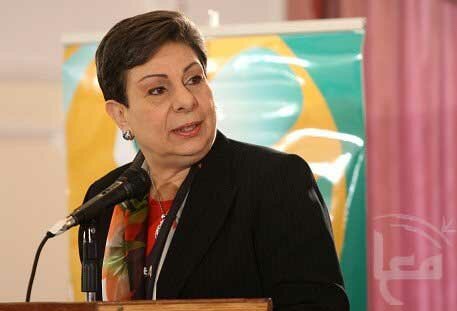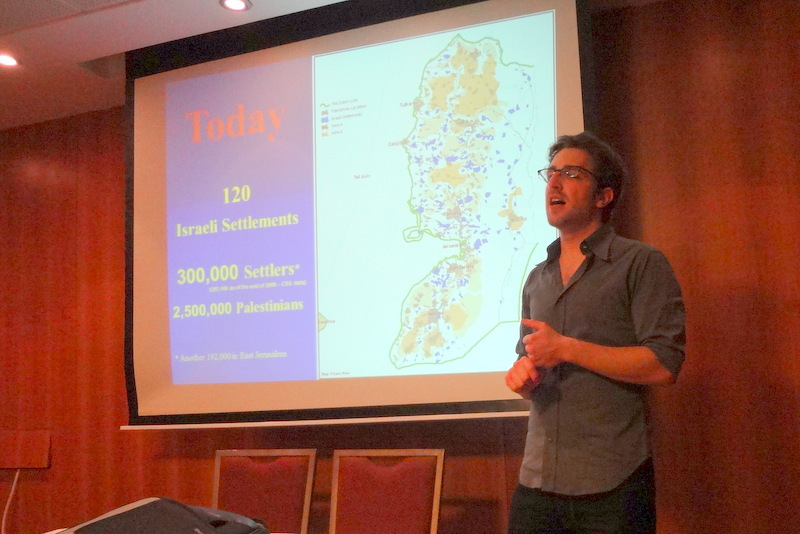Israel lobs spoiler into peace talks with funds for new settlements

Hanan Ashrawi, member of Palestinian negotiating team, says Sunday’s decision affirmed Palestinian suspicions that Israel seeks the diplomatic shield of negotiations. Photo by Ma’an images.
Israel Expands Settlements Eligible for Subsidies
Move After Peace Talks Resume Draws Palestinian Condemnation
By Associated Press/Wall Street Journal
August 04, 2013
JERUSALEM—The Israeli cabinet on Sunday expanded its list of West Bank settlements eligible for government subsidies, a decision that came just days after the resumption of long-frozen peace talks and drew quick Palestinian condemnation.
The cabinet approved a range of housing subsidies and loans for more than 600 Israeli communities deemed “national priority areas,” expanding an earlier list. The list includes poor towns in Israel’s outlying areas, but also dozens of settlements.
The Palestinians want to establish a state in the West Bank, Gaza and East Jerusalem—lands Israel captured in 1967—and renewed talks are to draw Israel’s borders with such a state. Since 1967, Israel has built dozens of settlements on war-won land—deemed illegal by most of the international community—that are home to around 560,000 Israelis.
Israel’s government hopes to encourage more people to move to the communities on the “national priorities” list. The last version of the list was approved in 2012.

This is retroactive approval of rogue settlements says Lior Amihai of Peace Now, seen here doing a presentation on settlements, 2013
The Israeli anti-settlement group Peace Now said the list approved Sunday increased the total number of settlements eligible for subsidies to 91 from 85, virtually all in areas that Israel would likely have to evacuate to make way for a Palestinian state.
Lior Amihai of Peace Now said three of the settlements added to the list had begun as rogue settlements that were established without formal government consent and then were legalized retroactively.
Hanan Ashrawi, a member of the Palestinian negotiating team, said, Sunday’s vote affirmed Palestinian suspicions that Israel seeks the diplomatic shield of negotiations, without being willing to reach an actual partition deal. “This is exactly what Israel wants—have a process for its own sake, and at the same time have a free hand to destroy the objective of the process.” She added, “This will have a destructive impact [on the talks], and it seems to me it’s up to the sponsors, the United States and the international community, to make Israel desist immediately.”
Israeli government spokesman Mark Regev said that in the case of settlements, any housing or infrastructure subsidies require additional government approval.
Four Israeli ministers abstained from the cabinet vote, citing the potential harm to negotiations.

Amir Peretz, former Labour Party minister of Defence, now environment minister with Hatnuah, the party led by Tzipi Livni who is leading the Israeli side in the Washington talks. Photo by Tess Scheflan.
Peace negotiations began in Washington last week, and will continue in Jerusalem next week. The U.S. wants a deal on the terms of a Palestinian state within nine months.
As part of the talks, Israel is to free 26 long-held Palestinian prisoners on Aug. 13, chief Palestinian negotiator Saeb Erekat said. It would be the first of four groups of a total of 104 veteran prisoners to be freed over the next few months.
The release is part of a U.S.-brokered deal that cleared the way for the resumption of talks.
Michael Sfard: ‘We have created this monster, a dual legal system’

